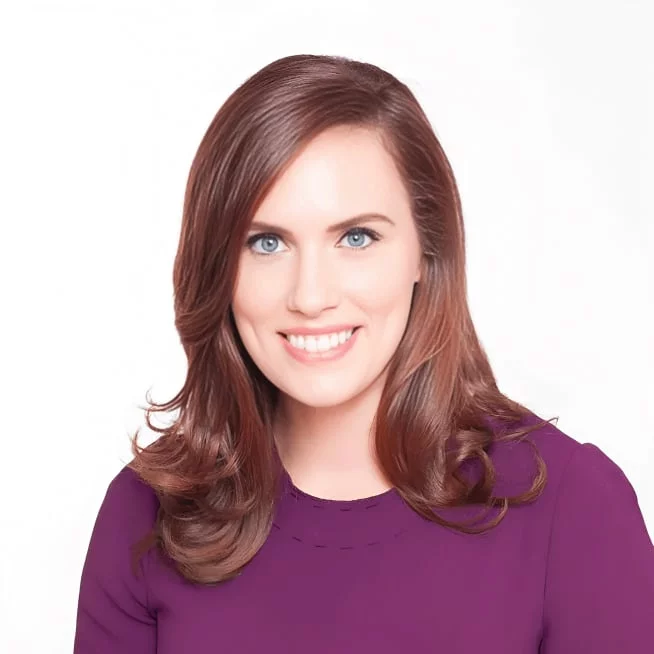I recently went one on one with Linda Wawrzyniak. Linda is the author of Million Dollar Adjustments: The Power of Small Changes on Performance, Productivity, and Peace.
Adam: Thanks again for taking the time to share your advice. First things first, though. I am sure readers would love to learn more about you. How did you get here? What experiences, failures, setbacks or challenges have been most instrumental to your growth?
Linda: Thank you Adam, it is a pleasure to share more about my work with your readers. In 2008, I happened to get involved in the teaching of the English language and American culture to newly signed international, professional baseball players. This is a highly competitive environment where the teaching is by far from traditional and failure happens every day. In professional sports, players are on a big stage where the world is watching. It’s hard enough to fail in front of teammates or your “boss”, but try failing in front of television cameras and thousands of strangers. The self-pressure is fierce and I have watched many young, international players suffer from anxiety as a result of it. I have also seen them struggle a bit but then turn it around and recover. The hardest thing I have seen is players who don’t have the ability to recover soon enough and then get released from teams. That really impacted me. I know what it’s like to be part of a family from another country that struggled to put food on the table. This is not from lack of desire but more from lack of knowledge or skills. When I saw the pain from these players who didn’t have the skills to adjust and recover well, I wanted to do more for them. So I started in the area that I had control over, which was education. I went on a mission to discover new teaching methodologies and create curriculums that would serve them well. It was in this mission that I researched and perfected a methodology that focused on the idea of adjustment – what it really is and how to use it for transformation both on and off the field. This methodology was based on testing data and has been used in the MLB draft as well as in player development. I am proud to say that it was used on two World Series winning teams as well! When I was asked to put this information in a book to share with others, I felt that this was a good thing to do because we all need great tools for recovering from failure, uncertainty and change.
Adam: What do you hope that readers take away from your new book?
Linda: It is my hope that readers understand the power of simple adjustments in their lives and what that really means after reading my book, Million Dollar Adjustments. Adjustments are not the same things as outright change. Adjustments have different characteristics that are really important when we are faced with improvement or growth. For example, our internal timing is one characteristic of adjustments. This timing impacts our rhythms and how fast or slow we are prepared to make an adjustment in the face of failure, change or uncertainty. When we know what our internal timing is, and more about the other characteristics, we can be prepared for any disruption in our lives, can recover sooner and perform at higher levels should we choose to. That should give us great peace.
Adam: What are your best tips for anyone on how to reach peak performance? And how can anyone develop a winning mindset?
Linda: Peak performance is another way to say that we’ve given our very best effort to master skills for the goals we are seeking and confidently use them at the right time and in the right amount for the situation.
On our way to achieving peak performance, we will fail sometimes because skill building and their execution is never a straight line. When this happens, we have to do know how to adjust. Great adjustments are the key to peak performance so it is important to learn how to adjust like a pro, which are hidden in five basic elements.
Adam, a winning mindset comes when we believe we can reach our goals and at the same time understand that adjusting is at the root of every great performer. Taking the time to look at our own adjustment patterns and actively making them stronger is a great way to improve performance. Fearing failure is less significant when you know you have the adjustment skill set to succeed!
Adam: Who are the best leaders you have been around- players, coaches and executives- and what did you learn from them?
Linda: Wow, that is a great question and definitely a hard one to answer! I’ve been blessed to be around many great leaders! From World Series champions to highly focused administrative people and winning coaches, leaders are everywhere in my industry. What I have learned from all of them is that they are humble and don’t need the cheers of people to know who they are and what they have to do. I tell stories about a few of the leaders I’ve come in contact with and I think the reader will enjoy those stories in the book.
Adam: What do you believe are the defining qualities of an effective leader? How can leaders and aspiring leaders take their leadership skills to the next level?
Linda: Great leaders are people who do what they say they are going to do, want the best for the people they lead, are not afraid to stand their ground for the good of the whole and do whatever it takes to make things happen (aka adjustments!). Leaders and aspiring leaders can take their leadership skills to the next level by first, knowing themselves and what they stand for. This means they also have to know what they stand in opposition to. Then, leaders have to be willing to act and adjust their strategies in accordance with their values. If something doesn’t go as planned, the leader has to be willing to regroup and confidently try again. A great leader always leans into his/her adjustments and takes responsibility for them if they go wrong, but don’t need the credit if they go right.
Adam: What are your three best tips applicable to entrepreneurs, executives and civic leaders?
Linda: In Chapter 7 of the book, Million Dollar Adjustments, I talk about the four traits of a million-dollar adjuster. This is a person who not only has “made it”, but has staying power. To stay in a highly competitive, sought-after role takes next-level skills. I believe that these traits are very important for those that have any responsibility in their roles. My tip would be to study these traits and adjust yours accordingly. For example, the ability to be decisive is one of the traits of a million-dollar adjuster. He/she doesn’t wait for someone to tell him/her what to do. This requires effective processing speed, positive belief and emotional control. Another trait is that a million-dollar adjuster can sustain attention after failure. Most people lose heart, interest or motivation after failure, but a million-dollar adjuster is not distracted by that. They don’t make failure part of their identity. Every entrepreneur, executive and civic leader can benefit by studying the four traits of million-dollar adjusters.
Adam: What are your best tips on the topic of communications?
Linda: Communication is very important to team dynamics and working groups. The two biggest reasons we communicate is for information sharing and building relationship. My first tip would be to build relationships even when communicating for information. This is as simple as asking a few questions about the other person and caring about the answers. The mix of information to relationship should always be at least 80%-20% so that you are not just the information seeker or giver always.
My second tip is to strive to understand the different ways people like to communicate and honor that whenever you can. Do they prefer email over texting? Phone call over email? Texting and phone calls? You will get the most out of the relationship when you find the most comfortable ways people prefer to communicate.
Finally, communicate at the level of the people you are talking to. People are looking for connection, not perfection.
Adam: What are a few of your favorite anecdotes from your time in baseball?
Linda: There are so many funny anecdotes that I have from baseball! One that stands out is the first time I was in an all-staff meeting during spring training. I was the only woman in the room and closer to the back. The room was filled with coaches, trainers, mental skills guys and the front office executives who were sitting at long tables in the front of the room. The executives were talking to the group and they all had Styrofoam cups in their hands. I thought they were drinking coffee as they brought the cup back and forth from their lips. As the meeting ended, I saw one of the guys spit in the cup and I realized that they were all chewing tobacco, not drinking coffee!! I laughed to myself and thought, “Yes, this is baseball, not corporate America.” Tobacco chewing, seed spitting and buckets of gum everywhere is a big part of the game!
Adam: What is the single best piece of advice you have ever received?
Linda: Over the years I have been fortunate to get great advice from so many around me. However, I would say the advice that gave me my drive came from my mom, who didn’t have the access to education that I did when she was growing up in her country. She always told me that you can do anything you set your heart on and whatever that is, be indispensable. That advice was so powerful when I was young and gave me a lot of confidence, even when things didn’t go right. The other piece of advice that I received was from my niece, who learned it from her mom. It was the definition of joy as Jesus first, Others second, Yourself last. This took the focus off of me and helped me see that working hard isn’t necessarily for better material things or fame but for a purpose that is bigger than that.









